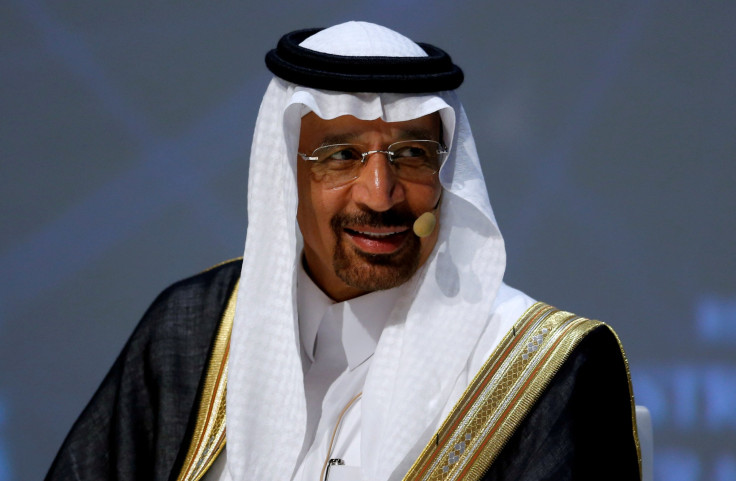Oil Prices 2017: OPEC Meeting Should Accelerate Return To Balanced Market, Saudi Energy Minister Says

Saudi Arabian energy minister Khalid al-Falih offered contradictory statements on Sunday as to whether his country would join the Organization of Petroleum Exporting Countries’ (OPEC) push to cut production of the commodity at its Wednesday meeting. His remarks sent oil prices into a zigzag early Monday.
The oil market will return to its previous higher prices on its own next year without a cap on the output of OPEC’s 14 member countries, Falih told reporters at the headquarters of petroleum giant Saudi Aramco in the city of Dhahran, according to Reuters. Nonetheless, he added that an intervention should speed up that process.
"We expect the level of demand to be encouraging in 2017, and the market will reach balance in 2017 even if there is no intervention by OPEC. But OPEC intervention aims to expedite this balance and the market recovery at a faster pace," he said. "I don't think that we have one path only in OPEC meetings, which is cutting production - I think maintaining production at current levels is justifiable, taking into consideration the recovery of consumption and growth in developing markets and the United States."
The price of Brent crude, a global benchmark, dropped about 60 cents, or 1.3 percent, early Monday, before spiking upward to $47.83 per barrel from $46.85 per barrel ahead of market open.
At its Wednesday meeting in Vienna, the cartel is expected to cut production to between 32.5 million and 33 million barrels per day, according to a September OPEC press release. That’s down from its current output level of more than 33.6 million barrels per day, according to most recent estimates.
Since the summer of 2014, the price of crude has plummeted to less than $50 per barrel from more than $110. The price drop has been especially hard on economies like Saudi Arabia’s, nearly 39 percent of which relies on oil, and that of fellow OPEC member Iraq, where petroleum constitutes more than 41 percent of gross domestic product.
Just last week, Iranian oil minister Bijan Zangeneh signaled his country’s readiness to collude with fellow cartel member states to cut output, adding that he hoped prices would rise to between $55 and $60 per barrel, a more than 10 percent price hike, as a result. The affirmation came months after Zangeneh stalled an agreement at a prior OPEC meeting in Vienna, in which he refused to back Saudi Arabia’s plan to freeze production, effectively gouging the commodity’s price.
As for Falih’s predictions, the Saudi minister may be somewhat lonely in his optimism for the industry’s re-balancing. The World Energy Council announced after its October summit that it expected energy demand to peak within the next 13 years.
“It is clear that we are undergoing a grand transition, which will create a fundamentally new world for the energy industry,” Ged Davis, the council’s executive chair of scenarios, said in a report from the summit. “Historically people have talked about peak oil but now disruptive trends are leading energy experts to consider the implications of peak demand.”
Even OPEC appeared pessimistic in its yearly World Oil Outlook released on Nov. 8. In the report, the cartel lowered its growth projections for the period between 2014 and 2020 to 3.4 percent, down from the report’s previous expectation of 3.6 percent. It revised last year’s price expectations for the same period down to $60 per barrel from $80 per barrel.
On the same day the OPEC report was released, oil prices nosedived as American voters selected a presidential candidate who has promised to “unleash America’s $50 trillion in untapped shale, oil and natural gas reserves” and “eliminate all barriers to responsible energy production,” according to President-elect Donald Trump’s campaign site. Such a move would flood the market’s supply, nullifying any effect of an OPEC output cap.
© Copyright IBTimes 2024. All rights reserved.












